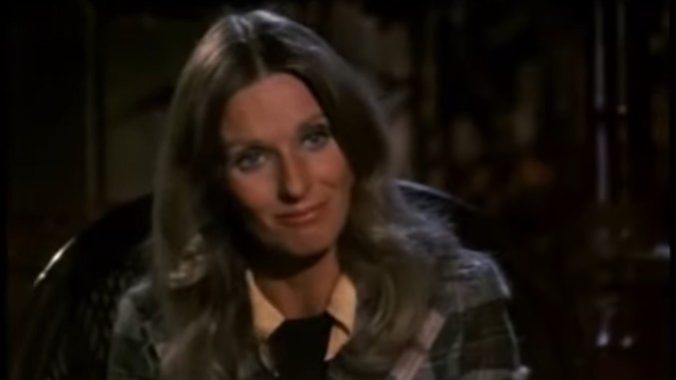A Month after Roe v. Wade, Cloris Leachman Tackled Pregnancy in A Brand New Life

From 1969 to 1975, ABC put out weekly films. They functioned as TV pilots, testing grounds for up-and-coming filmmakers, and places for new and old stars to shine. Every month, Chloe Walker revisits one of these movies. This is Movie of the Week (of the Month).
She was kidnapped—twice. She discovered her husband was a murderer. She discovered a different husband had given her syphilis. She even found herself trapped in hell!
Yes, poor old Cloris Leachman had a rough ride of it during her seven appearances in editions of the ABC Movie of the Week. In comparison to her other MOTW misadventures, dealing with an unexpected pregnancy was a fairly mild obstacle. Nevertheless, A Brand New Life would still send her on a journey rife with its own kind of turmoil.
Leachman’s character, Vicky, works at a prestigious opera company. She’s been happily married to businessman Jim (Martin Balsam) for 18 years. They wanted kids, but came to the conclusion that nothing was going to happen for them in that department, and have since settled into their fulfilling professional and personal lives. The news that a baby is in fact on the way, long after she stopped hoping for one, throws Vicky’s fulfilling life into chaos. Will she lose her job? At 40, is she too old? And after all this time—does she even want a child anymore? There are decisions to be made, and quickly.
Thanks to their rapid production schedules, MOTWs were often more timely than their big-screen counterparts. Roe v. Wade was decided on January 22, 1973, legalizing abortion across America for the next 49 years. A Brand New Life aired on February 20, 1973. Vicky suddenly had a choice that she wouldn’t have had—or at least, would have been far more difficult to take—just a month earlier. As we’ve seen previously however, ABC MOTWs would be ever-cautious in their reaction to such hot-button social issues.
It’s worth nothing that Vicky and Jim’s choice is made unquestionably easier by their evident wealth. Their apartment is palatial. Jim’s office is cavernous. The two meet their friends on terraces and in yachts. And as soon as he understands she’s pregnant, Vicky’s sweet boss (Wilfred Hyde-White) immediately and sincerely promises he will do everything possible to make her life easier when she’s back at work. The couple clearly have the luxury of contemplating this enormous decision without factoring in the finances.
-

-

-

-

-

-

-

-

-

-

-

-

-

-

-

-

-

-

-

-

-

-

-

-

-

-

-

-

-

-

-

-

-

-

-

-

-

-

-

-








































